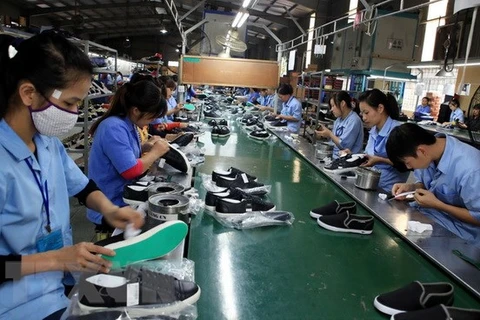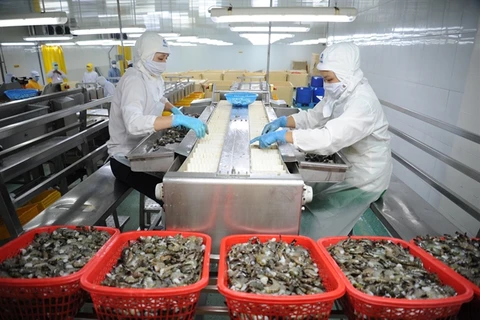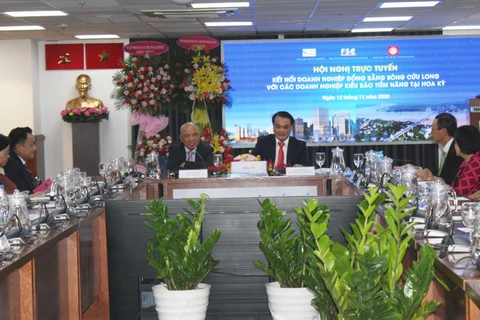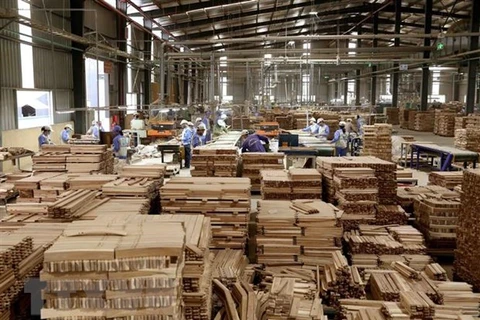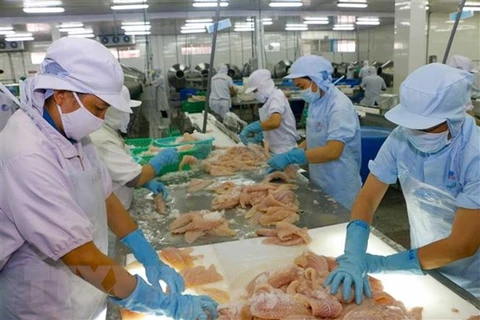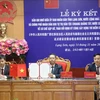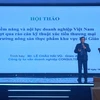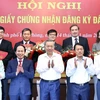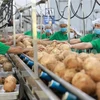Hanoi (VNA) - Boosting support for Vietnamese enterprises to capitalise on free trade agreements (FTAs) and engage more deeply in global supply chains is an important solution to fuel post-pandemic exports and economic recovery, the Export Forum 2020 held in Ho Chi Minh City on November 18 heard.
Pointing out the challenges facing exports, participants cited the World Bank (WB) as saying that the COVID-19 crisis has had an unprecedented impact on matters such as healthcare, the economy, and society around the world, while at the same time worsening protectionism.
Growing automation and the withdrawal of many countries from global value chains may make it hard for processing and manufacturing and export strategies to prove effective in emerging markets and developed economies, according to the WB.
It also held that although Vietnam has an open economy, its participation in global and regional value chains remains modest and much lower than that of ASEAN countries like Singapore, Thailand, Indonesia, Malaysia, and the Philippines.
Vietnam created just 20.4 billion USD in 2018 via its involvement in value chains, ranking 53rd among 174 economies. Its participation in complex stages of those chains also remains low.
Nguyen Huu Tin, Director of the HCM City Investment and Trade Promotion Centre (ITPC), cited the World Development Report 2020 as showing that Vietnam’s engagement in value chains is currently at the “limited processing-manufacturing” level.
The country should move to higher levels in value chains to improve productivity, he said.
Vice Chairman of the HCM City People’s Committee Le Thanh Liem said the city’s trading activities have greatly contributed to the trade revenue of the country as a whole, noting that its exports have increased 10 percent annually on average for many years, with industrial products accounting for over 80 percent of total revenue.
He acknowledged, however, that the impact of COVID-19 and continual changes in trade trends in many regions have considerably affected the city’s exports.
Therefore, assisting businesses to access market information, join global supply chains, and raise localisation rates in export items are among the city’s top priorities for sustaining export growth and shoring up its economy, Liem added.
Tin said the ITPC has been actively carrying out programmes to help enterprises capitalise on advantages generated by FTAs and promote Vietnam’s involvement in global supply chains.
During the COVID-19 pandemic, instead of face-to-face support activities, the centre has provided assistance online to update companies about market information and help them seek partners.
Knowledge about FTAs, especially the Comprehensive and Progressive Agreement for Trans-Pacific Partnership (CPTPP) and the EU-Vietnam Free Trade Agreement (EVFTA), has also been disseminated via different forms, to help businesses make use of the preferential treatment offered under those trade deals, he noted.
Echoing this, Pham Thiet Hoa, General Director of the Saigon Agriculture Corporation, pointed to the need to optimise the advantages brought about by new-generation FTAs in order to boost the participation of Vietnamese agricultural products in global supply chains, saying these agreements feature preferential tariffs on such commodities.
Many experts at the forum suggested the stronger application of modern technologies and equipment in production, the diversification of products and markets, greater connectivity with partners in supply chains, the optimisation of logistics services, and brand building, all of which should be implemented immediately to raise revenue and sustainability in Vietnam’s export sector./.
VNA

